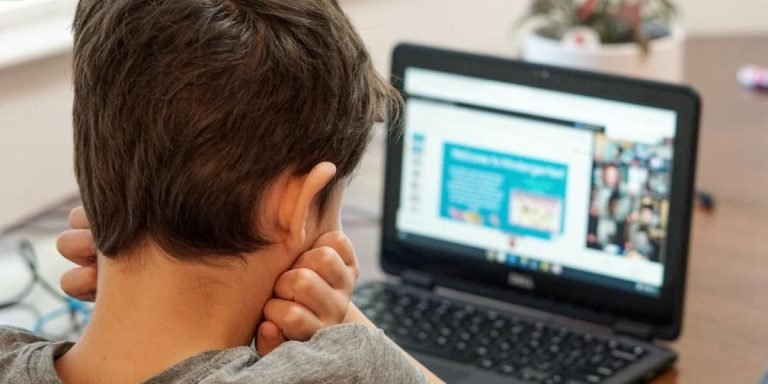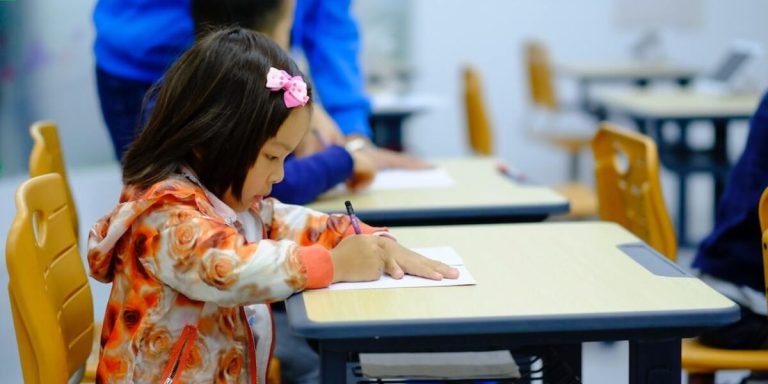1st Grade Learning Milestones for Your Child’s Development Journey
Understanding the milestones of 1st grade learning is key in your child’s development journey. As children graduate from kindergarten and step into their first year of Elementary School Education, they encounter new skills that challenge their cognitive, physical and emotional capabilities.
In this stage, parents often question – what does my child need to learn this year? This blog post unravels crucial academic goals for a 1st grader which include honing reading abilities, advancing math skills and getting introduced to basic science concepts among many others. We aim at giving you clarity on where your child should be by the end of 1st grade.
Did you know?
Did you know that by the end of 1st grade, most children can read and comprehend stories with complex sentences? This literacy leap is a crucial milestone in your child’s learning journey.
Understanding the 1st Grade Curriculum: Core Subjects Breakdown
The 1st-grade curriculum presents an essential phase in the elementary school education system. This year serves as a critical milestone, marking the transition from basic pre-school learning to more structured and thematic educational content. In essence, it sets the stage for all subsequent levels of schooling that your child will encounter.
Diving into core subjects is no longer about simple ABCs and counting numbers; instead, these cornerstones are formed around language arts (including reading comprehensions), mathematics (incorporating problem-solving skills), science (introducing operational definitions) and social studies (learning societal norms). The primary goal goes beyond knowledge accumulation— it aims at developing cognitive thinking abilities and nurturing curiosity within young minds through hands-on activities or engaging teaching methods.
By understanding each component of this comprehensive journey better, parents can help ease their children’s academic transitions while fostering love towards lifelong learning. Remembering that every child learns differently is crucial during this time—the aim should be on encouraging progress rather than comparing peers based on standard benchmarks set by society or systems.
The Importance of Literacy Skills in 1st Grade Education
The significance of developing robust literacy skills during the 1st grade cannot be stressed enough. At this foundational stage, children start their journey into independent reading and writing – two essential life skills that gear them up for academic success in later years. Thus, placing a sharp focus on improving “1st-grade” literacy proficiency is indeed crucial.
One significant facet of first-grade education involves understanding printed texts. Children at this level gradually evolve from recognizing basic alphabets to decoding simple words and sentences by themselves — an important milestone in becoming competent readers.
In addition to reading comprehension, they also learn about narrative crafting at its simplest—beginning with stringing together coherent sentences to create fundamental story structures involving characters and settings—which aids greatly towards enhancing their imagination as well as communication capabilities.
Moreover, spelling correctness emerges as yet another critical part of 1st grade curriculum-intended building blocks for honing effective written expression down-the-line—an aspect often overlooked but integral nonetheless when we talk about comprehensive literacy development.
Furthermore,basic grammar instruction forms part-and-parcel of the elementary school framework while ensuring fluency without sacrificing clear-cut sentence framing.It lays vital groundwork paving way for successful English language mastery—a stepping stone propelling pupils toward more complex linguistic challenges awaiting them ahead.
Exploring Mathematical Concepts for First Graders
In the realm of elementary school education, understanding mathematical concepts lays a solid foundation for future success. For first graders stepping into their early educational journey in 2023, grasping these concepts can make all the difference.
Firstly, let’s delve into number sense and operations that form an integral part of the math curriculum for your 1st grader. At this stage, children start recognizing numbers up to 100; they begin adding and subtracting within ten with ease. This is where basic arithmetic skills take root and foster problem-solving abilities.
Next on our list are measurement techniques which introduce young minds to notions like length, weight or capacity using real-world examples—a fundamental skill developed during the course of time through practical experience both inside and outside classrooms.
Let’s not forget about geometry! Geometry at primary level focuses primarily on shapes—identifying them by name—and also understanding simple spatial relationships such as above/below or near/far. These activities engage kids interactively thereby bolstering their comprehension capabilities effortlessly.
The last but equally significant component revolves around data analysis involving interpreting information from charts or diagrams—an initial exposure towards analytical thinking!
Enhancing Social and Emotional Learning in 1st Grade Classrooms
Expanding a 1st grader’s social and emotional learning is an essential aspect of their holistic education in today’s world, particularly relevant considering the unprecedented challenges we’ve faced since 2020. Social-emotional skills such as empathy, self-awareness, managing emotions and establishing positive relationships are foundational for children to thrive not just academically but also personally.
As educators or parents guiding children through these early stages of schooling in this year 2023, it becomes critical to foster an environment that allows kids to express themselves freely while understanding others’ perspectives. Various strategies can be implemented within classrooms like structured activities focusing on team-building or classroom discussions emphasizing individual feelings during different situations. These could prove significantly beneficial in building strong socio-emotional foundations at this tender age.
Similarly worth noting is the role digital tools have been playing lately in enhancing elementary school education. Incorporating online games designed specifically around key character development themes into teaching methods has shown promising results with first graders becoming more comfortable expressing their thoughts openly without fear of judgement.
In conclusion, making social and emotional learning an integral part of our pedagogic approach will help young learners navigate life successfully beyond academics both inside and outside the four walls of a classroom setting.
Encouraging Positive Interaction Among Peers
The first-grade classroom serves as a pivotal stage for social and emotional learning (SEL). More than just an academic hub, it’s also where children learn essential life skills like cooperation, empathy, and managing emotions. An effective strategy in this endeavor is to encourage positive interaction among peers.
Start with structured activities that bolster peer collaboration such as group projects or pair work exercises can do wonders. These types of tasks allow young students to navigate sharing ideas, taking turns, problem-solving together while respecting each other’s perspectives—all necessary components for building strong relationships later on.
Next up is promoting delightful conversations between learners during class discussions or free time play intervals—these casual dialogues provide invaluable moments for youngsters to practice active listening and respectful communication techniques they’ve learned from previous lessons. At times even allowing disagreements but guiding towards conflict resolution could present opportunities for growth too.
Moreover, fostering empathetic behaviors through role-playing games encourages kids not only understanding their own feelings better but also makes them more aware of others’ sentiments—a critical attribute needed throughout one’s lifetime.
Lastly remember recognition goes far! Complimenting instances when pupils exhibit kindness towards each other subtly implants the importance attached with being nice—one never knows whose day might brighten!
Fostering Independence and Confidence in Young Learners
As children step into 1st grade, it’s crucial to foster not just academic growth but also their independence and confidence. After all, elementary school education plays a pivotal role in shaping the future of these young minds.
Creating an environment that encourages autonomy can be highly beneficial for first graders. One effective way is by allowing students to make simple decisions on their own – such as choosing between two activities or deciding who they would like to pair up with for group work.
In addition, recognizing students’ efforts boosts self-esteem dramatically. When you affirm them individually or give positive feedback specifically mentioning what was done well, it reassures them about their capabilities and sparks motivation towards learning more!
Providing opportunities for leadership roles within classroom routines can also help cultivate responsibility while teaching important social skills at the same time. It may seem small scale – having someone lead morning greetings or check off completed tasks; nevertheless these chances build foundational systems for maturing independence.
Moreover, focusing on problem-solving strategies instead of always providing direct solutions fosters a mindset of resilience amongst youngsters facing challenges confidently! Think aloud your thought process when encountering difficulties during lessons so pupils understand there’s no shame in stumbling across roadblocks- rather,rising above becomes celebrated victory!
Integrating Technology into Elementary School Lesson Plans
In this digital era, the incorporation of technology into education has become increasingly significant. For 1st graders in elementary schools, technology offers an innovative and engaging approach to learning that can facilitate better comprehension and retention. The use of interactive e-books, educational games, or virtual field trips can potentially ignite students’ curiosity about different subjects while ensuring they learn at their own pace.
The key strategy here is integration rather than mere addition. Seamless blending of traditional teaching methods with technological resources brings out the best outcomes. Teachers curate lesson plans which infuse tech tools in a way so as to enrich typical classroom instruction—not replace it!
An immersive storytelling experience using augmented reality apps might make history lessons more exciting for the little learners.
Yet another important aspect to consider when integrating technology into 1st-grade classrooms is safety measures against cyber threats and inappropriate content access—especially when dealing with such young children. Through careful planning by educators along with parental guidance outside school hours—we ensure responsible usage thus maintaining online security.
Tools for Interactive Learning in a First-Grade Setting
In today’s fast-paced and digitally advanced world, educators are integrating technology into elementary school lesson plans more than ever before. Let’s focus on the 1st grade setting where interactive learning tools can offer both engagement and education.
One widely adopted tool in a first-grade classroom is tablet devices or iPads. These handheld gadgets deliver colorful visuals that captivate young minds while hundreds of educational apps aid them to learn language arts, math skills, science facts – all through play-based activities.
Next up we have digital storytelling tools like Storybird or Book Creator – perfect for letting our budding “digital natives” unleash their creativity with words and pictures. They write their very own stories which they illustrate themselves or pick from vast libraries of gorgeous illustrations these platforms provide.
Interactive whiteboards have also become integral element in many classrooms around the globe including 1st grades’. Virtual manipulatives endowed by such technologies inspire greater participation among students as they manipulate shapes, numbers & letters right on screen! This encourages visual learning along with helping kids understand abstract concepts better.
Moving along! We mustn’t overlook online coding programs suitable even at this level. Sites like Code.org introduce programming basics via gamified lessons drawing kiddos into critical thinking exercises thereby nurturing problem-solving ability early-on!
Developing Digital Literacy Early On
In the digital era of 2023, developing digital literacy in children from a young age is no longer an option; it’s an absolute necessity. The good news for parents and educators alike is that integrating technology into elementary school lesson plans has been transformed by exciting new methods and tools.
Digital literacy refers to the ability to find, evaluate, utilize, share and create content using information technologies – skills which are crucial in our increasingly digitized world. More specifically within the context of first grade education, this entails teaching students how to safely navigate websites under supervision or use educational apps on tablets provided at schools.
No modifications needed.
1) **Identify Useful Educational Apps:** There are numerous applications developed precisely with little learners in mind like ABCmouse.com Early Learning Academy which provides lessons across multiple subjects through fun games.
4) **Promote Interactive Ebooks:** Digital books aren’t just convenient – many come interactive versions that engage kids more than traditional reading materials do thanks their multimedia incorporation making stories truly alive!
Conclusion
In essence, the journey of 1st grade is a winding and exciting one, laden with several key milestones that are invaluable to your child’s developmental progress. These milestones aren’t just markers in their growth chart but stepping stones towards becoming more independent learners capable of critical thinking – indeed an essential skill for surviving this fast-paced world.
As we come to the end of our voyage detailing “1st Grade Learning Milestones,” why not continue exploring? Our website brims with further helpful information on educating children at every stage. Whether you’re a parent or an educator looking for enriching insights into childhood education support systems, consider us your ally in navigating this fascinating universe!







